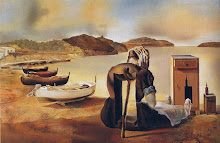Mark 12:12-25
12 On the following day, when they came from Bethany, he was hungry.13Seeing in the distance a fig tree in leaf, he went to see whether perhaps he would find anything on it. When he came to it, he found nothing but leaves, for it was not the season for figs. 14He said to it, ‘May no one ever eat fruit from you again.’ And his disciples heard it.
15 Then they came to Jerusalem. And he entered the temple and began to drive out those who were selling and those who were buying in the temple, and he overturned the tables of the money-changers and the seats of those who sold doves; 16and he would not allow anyone to carry anything through the temple. 17He was teaching and saying, ‘Is it not written,
“My house shall be called a house of prayer for all the nations”?
But you have made it a den of robbers.’
18And when the chief priests and the scribes heard it, they kept looking for a way to kill him; for they were afraid of him, because the whole crowd was spellbound by his teaching. 19And when evening came, Jesus and his disciples* went out of the city.
20 In the morning as they passed by, they saw the fig tree withered away to its roots. 21Then Peter remembered and said to him, ‘Rabbi, look! The fig tree that you cursed has withered.’ 22Jesus answered them, ‘Have* faith in God. 23Truly I tell you, if you say to this mountain, “Be taken up and thrown into the sea”, and if you do not doubt in your heart, but believe that what you say will come to pass, it will be done for you. 24So I tell you, whatever you ask for in prayer, believe that you have received* it, and it will be yours.
25 ‘Whenever you stand praying, forgive, if you have anything against anyone; so that your Father in heaven may also forgive you your trespasses.'
------------
Many people are familiar with the story of Jesus cleansing the Temple...overturnin
The story about the fig tree is a bit odd: Jesus is hungry when He notices a fig tree in the distance. The fig tree looks green and healthy from a distance, so He rides over to the tree in order to pick some fruit. When He arrives at the tree, though, there is no fruit to be had. The tree looked healthy enough from a distance; but, bore no fruit. Jesus makes a quick judgment on the tree and curses it. After Jesus cleans the Temple, the disciples notice (a day after they had seen Jesus curse the healthy-looking tree) that the tree has died.
Of course, it is easy to compare the story of the fig tree to the story of the Temple cleansing. Much like the fig tree, the Temple appeared vibrant and alive from a distance. The entire country came through the gates of the Temple, and the outer courts were brisk with activity. People came from miles around to offer sacrifices to God and participate in prayers. Of course, also like the fig tree, Jesus found that, up close, all the activity of the Temple was bearing no fruit. The hustle and bustle of Temple activity was not bringing people closer to God or their neighbors...
Around our home, a whole lot of holiday activity is going on. We sent out a boatload of Christmas cards, my wife is singing in the Christmas Eve service, I'm getting things together for a new small group, decorations are all over the place, and we just finished shoveling out of the 2nd largest snow storm in Philadelphia'
All of the activities I mentioned are good activities and/or necessary ones...there is nothing wrong with them and, quite the contrary, there can be so much that is beneficial from them. As we know, though, it is very easy to allow the activity to go on and leave the heart behind. When we do all of the various things around the house, I am trying to be intentional about finding the fruit in the activities. Are we reaching out to people and caring for them? Is the message of Christmas being spread? Have we become like that little fig tree that looks so alive, yet is really dead to all good purposes?
I think we are doing o.k. in this regard; certainly not perfect, we always can do better. We need to keep focus on the fruits of the activities we are taking place in...regardless of the beauty of our lives to passer-bys, we are only truly alive is we are fruitful to the world around us.
I hope the peace and mercy of the Christmas season is upon you, and that your lives are truly fruitful!

